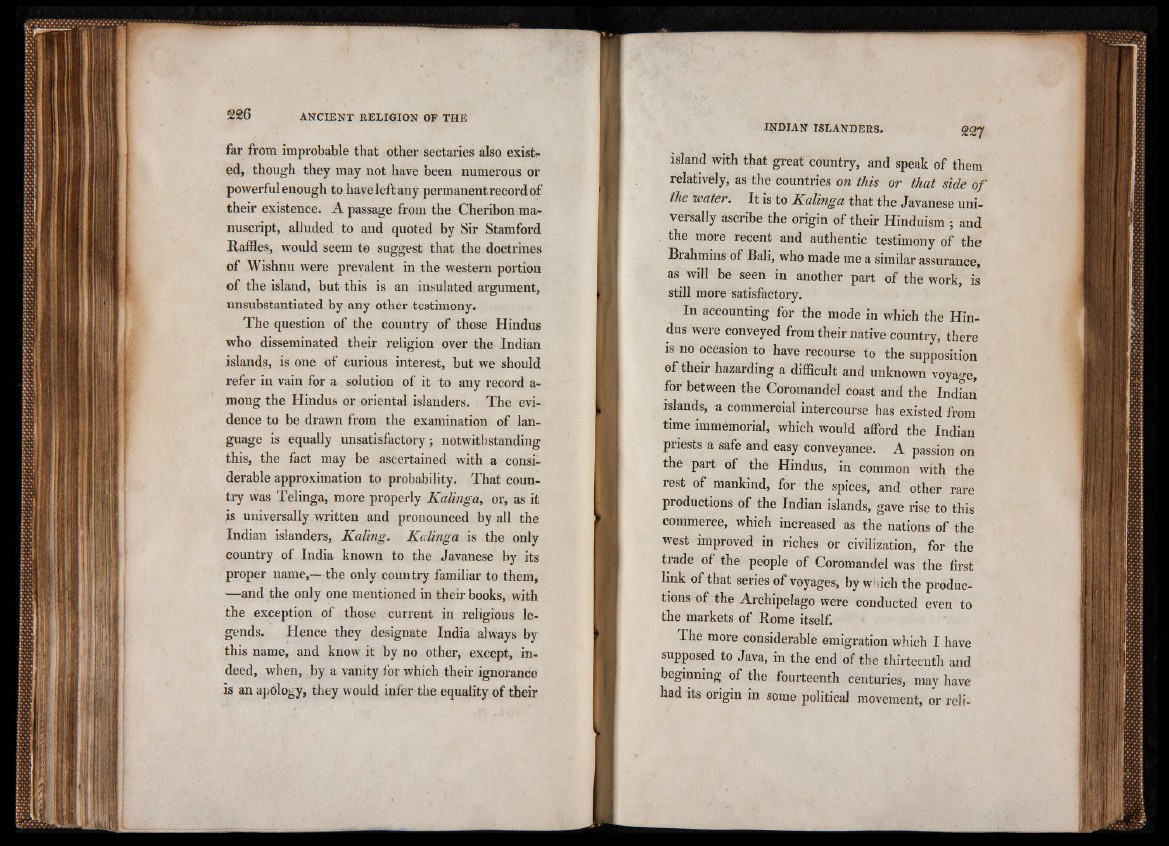
far from improbable that other sectaries also existed,
though they may not have been numerous or
powerful enough to haveleftany permanent record of
their existence. A passage from the Cheribon manuscript,
alluded to and quoted by Sir Stamford
Raffles, would seem to suggest that the doctrines
of Wishnu were prevalent in the western portion
of the island, but this is an insulated argument,
unsubstantiated by any other testimony.
The question of the country of those Hindus
who disseminated their religion over the Indian
islands, is one of curious interest, but we should
refer in vain for a solution of it to any record a-
mong the Hindus or oriental islanders. The evidence
to be drawn from the examination of language
is equally unsatisfactory; notwithstanding
this, the fact may be ascertained with a considerable
approximation to probability. That country
was Telinga, more properly Kalinga, or, as it
is universally written and pronounced by all the
Indian islanders, Kaling. Kalinga is the only
country of India known to the Javanese by its
proper name,— the only country familiar to them,
—and the only one mentioned in their books, with
the exception of those current in religious legends.
Hence they designate India always by
this name, and know it by no other, except, indeed,
when, by a vanity for which their ignorance
is an apology, they would infer the equality of their
island with that great country, and speak of them
relatively, as the countries on this or that side of
the ’water. It is to Kalinga that the Javanese universally
ascribe the origin of their Hinduism ; and
the more recent and authentic testimony of the1
Brahmins of Bali, who made me a similar assurance,
as will be seen in another part of the work, is
still more satisfactory.
In accounting for the mode in which the Hindus
were conveyed from their native country, there
is no occasion to have recourse to the supposition
of their hazarding a difficult and unknown voyage,
for between the Coromandel coast and the Indian
islands, a commercial intercourse has existed from
time immemorial, which would afford the Indian
priests a safe and easy conveyance. A passion on
the part of the Hindus, in common with the
rest of mankind, for the spices, and other rare
productions of the Indian islands, gave rise to this
commerce, which increased as the nations of the
west improved in riches or civilization, for the
trade of the people of Coromandel was the first
link of that series of voyages, by which the productions
of the Archipelago were conducted even to
the markets of Rome itself.
The more considerable emigration which I have
supposed to Java, in the end of the thirteenth and
beginning of the fourteenth centuries, may have
had its origin in some political movement, or reli